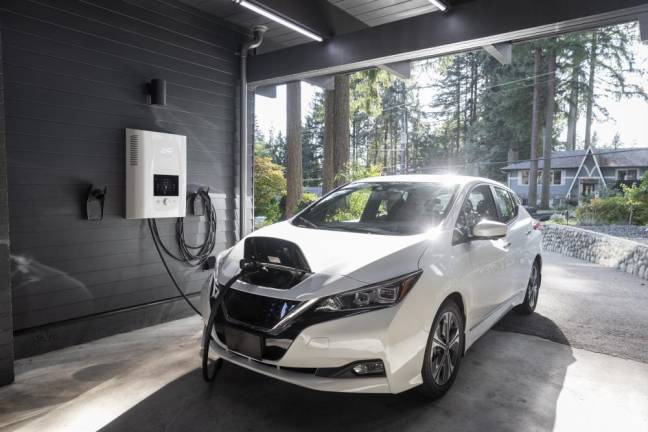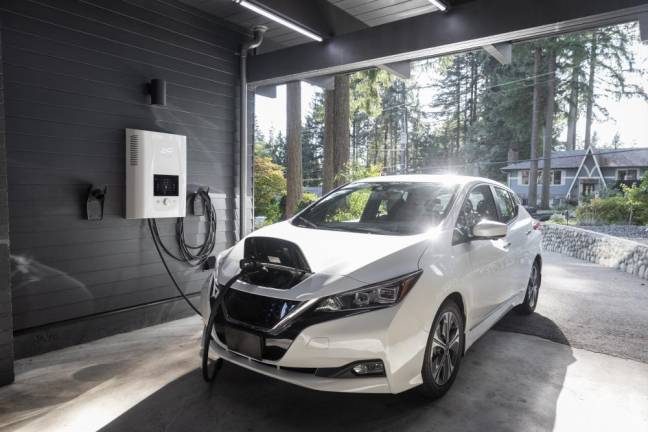Planning afoot for electric vehicle charging locations in West Milford
Various sources of funding are being considered.


With New Jersey eligible to receive $15 million of the $5 billion in federal funds designated to build out the nation’s electric vehicle charging infrastructure, the West Milford Environmental Commission (EC) members discussed the feasibility of installing charging stations at trailheads and various locations throughout the township. The commissioners agreed that a concept should be developed.
New Jersey is expected to receive $104.3 million over five years. Federal money will be available to the state after the submission of an “EV infrastructure deployment plan.” This must be submitted by Aug. 1 with eligible plans to be approved by Sept. 30. Framework for a state plan is already in place with “Alternative Fuel Corridors”, a national network of refilling stations for vehicles that do not rely on gas.
Passage of a recent bipartisan infrastructure bill followed the effort by President Joseph Biden to change vehicle purchases from those powered by fossil-fuel to electric power. In 2020 New Jersey’s Electric Vehicle Act set an ambitious goal of getting 330,000 electric vehicles on the road by 2025. While electric vehicles are rightly promoted as the “green” alternative to fossil-fueled internal combustion vehicles, they are presenting unique challenges for the state and its municipalities to meet.
Stephen Sangle, EC chairman, raised the possibility of using some money from the township’s Open Space, Recreation, and Farmland and Historic Preservation Trust Fund to buy parcels of land adjacent to parks and trails for the purpose of establishing charging stations. He said Mayor Michele Dale advised him that if use of money from the account is to benefit the community while having an environmental impact, consideration for the purpose he suggested would indeed be a possibility. Sangle said that once a concept is firmed up a meeting with Mayor Dale will be arranged.
During the EC discussion about powering the stations, Commissioner Tom Tamayne, said that utility lines would be utilized and metered. Commissioners suggested that a placard like those used to identify persons with disabilities be used to show eligibility to use the station facilities.
The commissioners suggested that local schools be encouraged to install charging stations at school parking lots. Commissioner Don Weise said that if the township intends to be viewed as a recreational community, parking for vehicles bringing visitors needs to be available.
Commissioner Jim Lyons, a new volunteer member of the EC, took his oath of office and officially participated at his first meeting with the group on Feb. 2. He volunteered to investigate obtaining funds that might be available to the township through the new bipartisan infrastructure bill. Along with the designated funding there will also be a competitive program for states to seek extra money that would go toward rural or underserved communities.
There are about 670 electric vehicle charging stations now in New Jersey, according to the US Department of Energy Alternative Fuels Data Center.